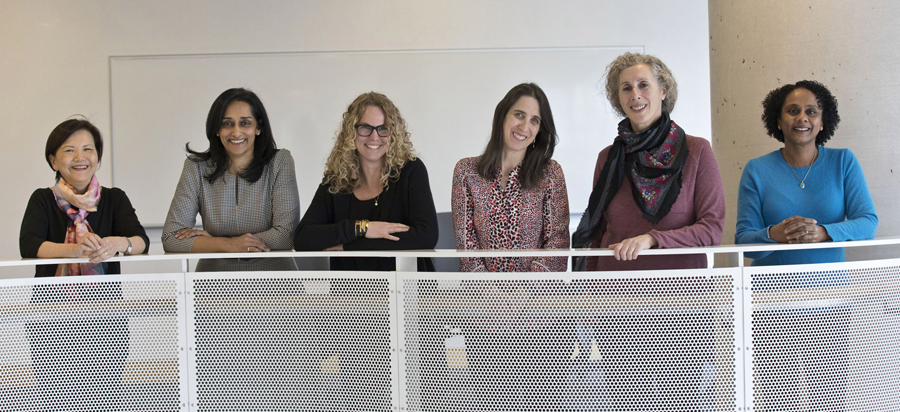What it takes to be a successful female scientist
Summary:
In honour of the United Nations’ International Day of Women and Girls in Science, we talked to some notable female physicians and scientists at SickKids who work in research.
In honour of the United Nations’ (UN) International Day of Women and Girls in Science, we talked to some notable female physicians and scientists at The Hospital for Sick Children (SickKids) who work in research labs, offices, and with patients in the hospital. All are current or past Canada Research Chairs.

These six women come from varied backgrounds and have different areas of scientific interest and expertise, but some common themes emerged when they were asked these two questions: What does it take to be a successful female scientist? And what’s your advice for girls considering a career in science?
Dr. Annie Huang
- Staff Oncologist in the Paediatric Brain Tumour Program and Senior Scientist in the Cell Biology Program and Arthur and Sonia Labatt Brain Tumour Research Centre at SickKids
- Focus: rare childhood brain tumours
"Not considering your gender to be a limiting factor, but recognizing there are differences between genders that call for different personal sacrifices and compromises. Recognize and act on your passion, learn from your failures and work hard. Do not be afraid!"
Dr. Meredith Irwin
- Head of the Solid Tumour Section in the Division of the Haematology/Oncology, Senior Scientist in the Cell Biology Program and Associate Chair of Paediatrics (Research) at SickKids
- Focus: neuroblastoma in young children
"It is the same for everyone, but may be a bit more challenging for women. You need perseverance. Don’t be willing to take no for an answer. Seek out opportunities and collaboration. Science is a team sport. If this is your passion, stop at nothing. Many of us have several mentors and would not be where we are without their support, sponsorship and advice."
Dr. Rulan Parekh
- Staff Physician in the Division of Nephrology, Senior Scientist in Child Health Evaluative Sciences and Associate Chief of Clinical Research at SickKids
- Focus: chronic kidney and cardiovascular disease
"Be curious and follow your passion to understand why children develop disease. There are so many opportunities with a career in science and the rewards are innumerable."
Dr. Lisa Robinson
- Head of the Division of Nephrology and Senior Scientist in the Cell Biology Program at SickKids. She is also the founder of the SickKids Kids Science and Student Advancement Research (StAR) programs, created to bring science to young people, particularly those from marginalized backgrounds.
- Focus: childhood kidney disease
"I recognize that there can be systemic hurdles for girls who pursue science, and most especially for girls from communities that are under-represented in scientific fields. Follow your passion with enthusiasm, dedication, and hard work. Seek out people who can mentor and sponsor you along your journey."
Dr. Lisa Strug
- Senior Scientist in the Genetics & Genome Biology Program and Associate Director of The Centre for Applied Genomics (TCAG) at SickKids
- Focus: genetic causes of childhood diseases, such as cystic fibrosis and epilepsy
"Resilience and perseverance. Be able to accept criticism, learn from it and galvanize it to improve your science. Do what you love!"
Dr. Wendy Ungar
- Senior Scientist in the Child Health Evaluative Sciences (CHES) Program and Director of Technology Assessment at SickKids (TASK)
- Focus: child health economics
"No matter your sex or gender, always strive for excellence and work hard. Girls and women may need more encouragement to reach out and speak up. Don’t settle for lower expectations from those around you. Here’s the inside secret that few people will share – science is actually fun!"

